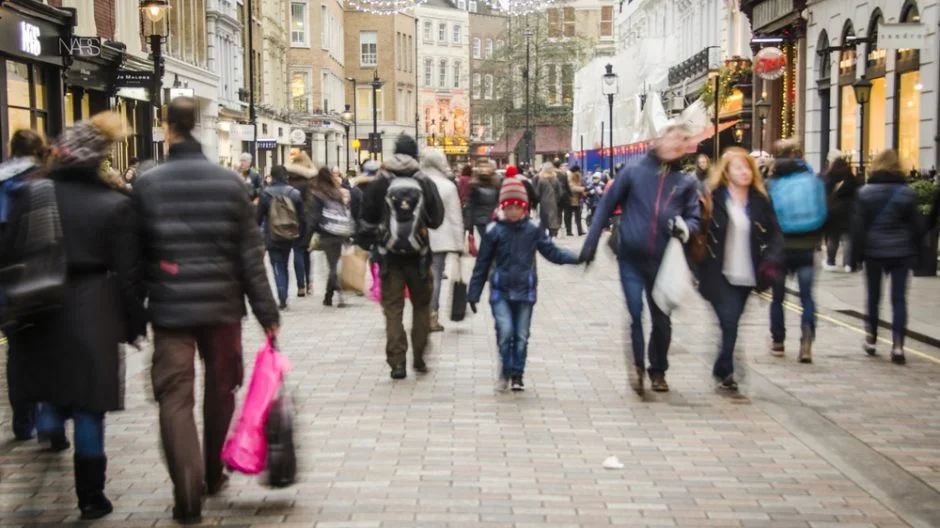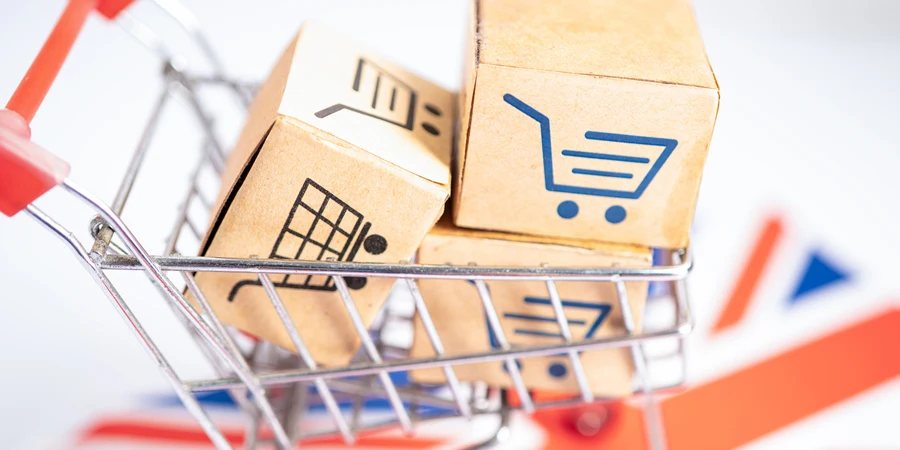According to the latest figures shared by the Office for National Statistics (ONS) muted clothing sales in March contributed to a retail sales stagnation.

Retail sales in March saw both sales values (amount spent) and volumes experience no change on the month (0.0%), suggesting that increased prices were affecting consumer spending habits.
ONS said the retail sales remain broadly unchanged for a second month, with volumes rising 0.8% over the year to March 2024, while remaining 1.2% below their pre-coronavirus (COVID-19) pandemic level in February 2020.
Data shared by ONS unveiled sales volumes increased by 1.9% in the three months to March 2024 when compared with the previous three months. This, ONS pointed out, was following low sales volumes over the Christmas period for retailers.
Key ONS figures from March
- Falls in food and non-store retailing were offset by increased spend on fuel (3.2%) and non-food items, including clothing, (0.5%).
- Textile clothing and footwear retail store sales were 0.5%.
- Non-food store sales volumes (the total of department, clothing, household and other non-food stores) rose by 0.5% over the month, with increased footfall reported by some retailers. This was said to be consistent with the rise in footfall on the high street.
- Rises were also seen in secondhand goods stores (which includes antiques and auction houses), hardware and furniture stores, and clothing stores.
- Online sales were broadly unchanged and rose by 0.1% over the month to March 2024, and by 1.7% over the year.
- Textile clothing and footwear stores registered a 3.4% increase in online sales.
Retail industry onlooker viewpoints
EY UK&I retail lead, Silvia Rindone, believes that Easter did not bring the increase in sales that retailers were hoping for, with sales volumes and values remaining relatively unchanged for a second month.
Rindone said: “As we head into the summer months, retailers are hoping for a turning of the tide as consumer confidence grows. The latest EY Future Consumer Index report found that consumers are becoming increasingly savvy about the value they seek, which transcends price considerations to encompass overall value for money, for example, the recent cost-of-living crisis, saw a significant portion of consumers shift towards private label products.
“However, as food inflation starts to ease, the price gap between private label and branded products will narrow, which is leading some consumers to revert to branded goods which often provide more innovative ranges.”
She suggested retailers must become attuned to these strategic shifts and, to maintain their appeal, private label products must continue to offer clear price advantages.
According to her, retailers also need to ensure they are transitioning to growth, rather than continuously focusing on pricing, ensuring there is a theme of continuous improvement, rather than one-off transformation.
Nicholas Hyett, investment manager at Wealth Club, said: “Retailers had a gloomier March than many expected, and overall sales remain 1.2% below their pre-covid peak. Department stores remain an area of particular weakness, not good news for John Lewis which announced it would not be paying its regular staff bonus for the second year in a row during the month.””
He added that these disappointing numbers will fuel speculation that the Bank of England will consider interest rate cuts this summer, though are not poor enough to necessitate a move. He said: “It leaves the UK a little in limbo once more.”
Matt Jeffers, retail strategy and consulting managing director for Accenture in the UK & Ireland, echoed the same sentiments, emphasising that after a flat February, retailers will have been longing for the start of Spring and the Easter holidays.
“Given the uncertain economic picture, consumers remain cautious with their spending. As we approach the summer, and after two relatively flat months, retailers need to boost their efforts to attract and retain customers. Since price is a primary concern for shoppers, brands must highlight the value and quality of their products to stand out in the competitive market.”
ONS recently shared the UK’s gross domestic product (GDP) is estimated to have fallen by 0.3% in the fourth quarter of 2023 (October to December) indicating a recession as consumers tighten budgets.
Source from Just Style
Disclaimer: The information set forth above is provided by just-style.com independently of Alibaba.com. Alibaba.com makes no representation and warranties as to the quality and reliability of the seller and products.




